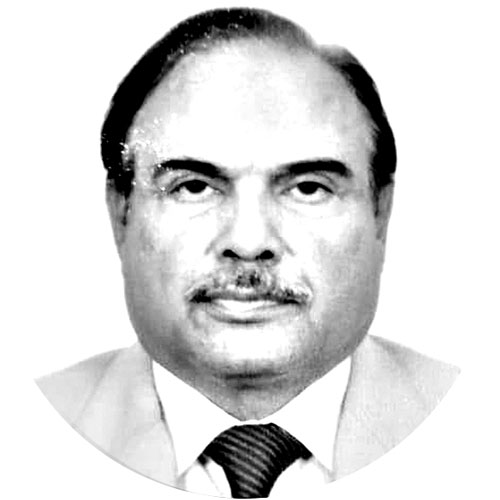Kanwar Muhammad Dilshad
It is interesting that while the government wishes to adopt an artificially strained and restrictive interpretation of the words under the Constitution in Article 226 so as to remove the requirement for secret balloting in respect of Senate elections, it is simultaneously prepared to liberally read words into Article 51..6 and 106..3 in order to introduce a requirement for secret balloting even it’s mentioned in Elections Act 2017 in section 222.
Realising the havoc such an interpretation would have in respect to the sanctity of the electoral process and the intimidation, coercion under influence, it said, adding the government attempted to read the articles 51, and 106 requirement for direct and free vote as including a requirement for secret ballot.
Undoubtedly, the Senate is elected under the Constitution and the Election Act 2017 merely provides the procedure for holding the Senate election, as mandated by Article 218 of the Constitution, it said, adding that any provision of the Elections Act that regulates the conduct and manner of the Senate elections must comply with the constitutional requirement of voting by secret ballot as prescribed by Article 226… Voting by secret ballot has been widely and universally recognized as a fundamental principle of free and fair elections. The principles of free and free elections like the universal free and equal and direct suffrage post proportional representation, first..past the post voting, transparency and secrecy of ballot have been encoded in various parts of the constitution.
It is crucial to highlight that Article 63-A of the Constitution deals with inter alia horse trading. This provision essentially restricts the voting power of the members of parliament’ or the provincial assemblies by making them bound by the decision of the party head.
It was observed that the federal government and opposition must hold consultations to reach a consensus decision on reforming the Senate election process instead of opting for hastily legislation without weighing its pros and cons. It is unwise to rush through a constitutional amendment for allowing an open ballot with only a month remaining for fresh elections. In October 2020, the federal government tabled the 26th constitutional amendment bill in the National Assembly, wherein it sought amendment to Article 59.2 by replacing the words transferable vote with the words open ballot and further sought an amendment to Article 226…. the purpose of single transferable vote is to allow all shades of political opinion present in the provincial assemblies to be reflected at the federal level.
As for foreign funding side effects, PM is being kept in dark. since 1962 laws have all along prohibited foreign funding of political parties and election candidates. The prohibition, which was first introduced in the erstwhile Political Parties Act 1962 in order to curb Indian foreign funding in East Pakistan, particularly Awami League as Indian agencies were involved to bribe and buy loyalties of some politicians of East Pakistan including Sheikh Mujeeb-ur-Rehaman, continued in the Political Parties Order 2002 and has now been included in the present Election Act 2017. Although there have been some little though significant variations in the three laws, funding of political parties and candidates from foreign sources is clearly disallowed in all of them. It is clear that at least on paper, there are extremely serious consequences for accepting even small amount of funds from a foreign national. Those political parties that are facing trial in Election Commission of Pakistan should read thoroughly Sections 204,2010, 2012, 2015 and Article 62.1 of the Constitution.
The Article 17…3 of the Constitution added that every Political Party shall account for the sources of its funds in accordance with law. The law in this respect is the Elections Act 2017. There will, of course, be a number of legal battles and the courts may also interpret the law if a party is declared by the government and upheld by the Supreme Court as foreign aided as per section 2012 of Elections Act 2017 and Election Commission of Pakistan is empowered to issue a notice to show cause to such political party who fails to comply with the provision of Sections 209 and 2010.
Pressure builds on PTI in the foreign funding case. The matter has been dragged on for over six years. In principle, the full disclosure of political finances received by political parties and candidates during polls is a critical step towards increasing electoral transparency and accountability. In some countries, there are laws that require political parties to disclose the source and amount of funds received, while in others there is a cap on how much can be spent by a candidate. Such practices if followed would indeed strengthen the democratic process in Pakistan, where allegations of bribes and horse trading mar every election.
—The writer is former Federal Secretary Election Commission of Pakistan and currently Chairman National Democratic Foundation.










